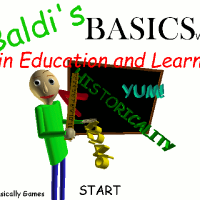How Does Technology Affect Education? - Blog

How Does Technology Affect Education?
Technology has revolutionized how we communicate, learn and work. It can be an incredibly powerful tool that can enhance education at every level – from primary school to higher education.
Technology can have a tremendous impact on education by providing quality content in an accessible and engaging manner that encourages learners. Furthermore, it makes it simpler for teachers to customize lessons according to each student’s individual needs.
Furthermore, technology offers tools for special needs students and the visually impaired to enable everyone to have access to information regardless of their socioeconomic status or location.
Additionally, virtual schools allow students to connect with peers and teachers from around the globe, offering them a platform where they can hone new skills and acquire invaluable 21st century abilities.
Technology offers teachers an ideal platform to connect with their students through various interactive activities and assignments that can be completed remotely from home or while on-the-go.
One of the best technologies is virtual reality (VR). This enables students to explore various environments and situations, sparking their imagination and creativity. This type of technology is especially advantageous in science and math courses where having the capacity to explore complex scientific concepts is crucial for success.
Students can utilize virtual reality (VR) technology to explore distant landscapes or visit museums. It provides them with an immersive and unique way of experiencing the world, which encourages empathy and comprehension from various viewpoints.
Beyond making learning more engaging and captivating, technological innovations can also improve learning outcomes and test scores. Studies have demonstrated that students who use this type of technology are more engaged and perform better in classroom settings than their counterparts without such devices.
Another significant advantage of technology in education is that it saves time for both teachers and students. This is especially true with online classes, where it’s straightforward for students to register and take attendance without interrupting the teacher’s lecture. This saves a great deal of effort while increasing efficiency in the classroom.
When students are having difficulty understanding a concept, they can access various search engines and ask their instructors for more information. This ease of access to knowledge not only assists them with any issue at hand but also encourages them to take an active role in the learning process.
Additionally, this gives students a chance to hone their research skills and apply what they’ve learned. Furthermore, it gives them more chances to express their ideas and opinions with others.
Technology can certainly enhance learning, but it should never replace a qualified teacher. Furthermore, technology should be tailored to each student’s individual needs so that everyone gets the most out of their lessons and experiences.




